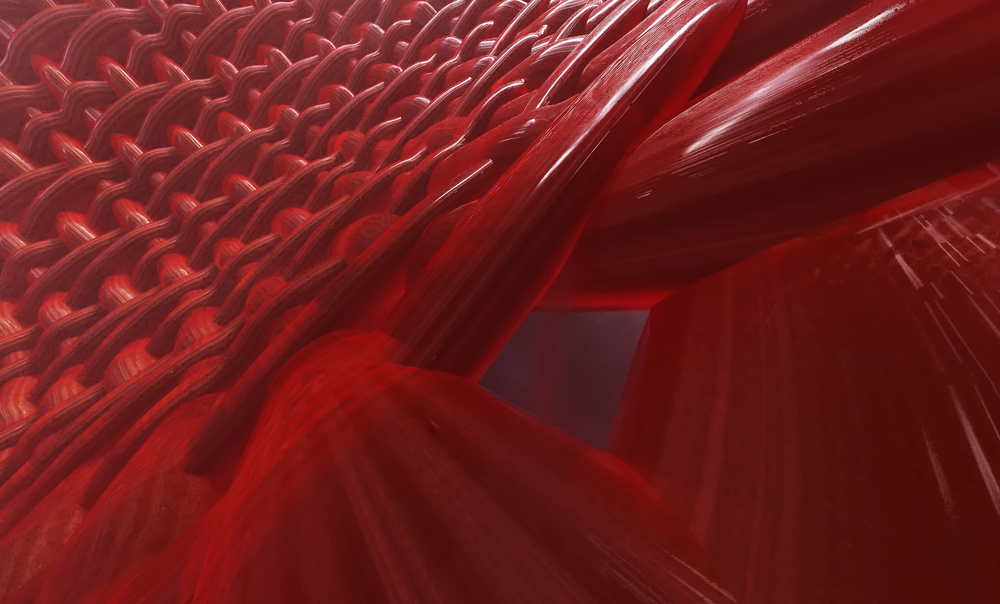Science on a Chip: Lab Platform for ALS Study Lets Researchers Make Muscle Fibers in Gelatin

Scientists at the University of Southern California have developed a laboratory model of skeletal muscle, fabricated on a tiny chip molded in gelatin, derived from natural muscle protien.
As a research platform tool, the mold holds the potential to aid studies on muscle development, degeneration and diseases. Future plans for gelatin chips include the study of amyotrophic lateral sclerosis (ALS).
The project, “Prolonged Culture of Aligned Skeletal Myotubes on Micromolded Gelatin Hydrogels,” was published in Scientific Reports.
ALS is a disease mainly characterized by the degeneration of upper and lower motor neurons, weakness, and muscle atrophy and paralysis. A main theory for how the disease develops revolves around motor neurons as the primarily affected cells, with muscle alterations as a consequence of motor neuron loss.
Recent research focused on the implication of skeletal muscle revealed findings that suggest skeletal muscle fibers and non-neural cells might trigger motor neuron degeneration, possibly making the disease worse.
Currently, research relies heavily on animal models to identify disease mechanisms and for preclinical drug screening. But the models are expensive and produce many confounding factors, making identification of cause-effect disease relationships difficult.
The laboratory skeletal muscle gelatin models reduce costs and allow for more research.
Typically, muscle fibers commonly “grown” in synthetic substrates, were mostly unsuccessful because layers of the substrate would separate or detach causing failure of myogeneses (the formation of cells into muscles.)
In the study, researchers developed a gel scaffold from the gelatin made of protein found in mouse muscle. Three weeks later, many mouse myotubes (muscle fiber cells) continued to adhere and the muscle fibers were longer, more developed and wider. Researchers now believe that human myotubes can also thrive on similar gelatin chips and could open the doors to greater disease and disorder treatment research.
Senior author Megan L. McCain, said the discovery can impact quality of life issues for millions of people because skeletal muscle diseases and disorders range from severe muscular dystrophies to gradual decreases in mass that comes with aging.
“By creating an inexpensive and accessible platform for studying skeletal muscle in the laboratory, we hope to enable research that will usher in new treatments for these patients,” McCain said.
McCain, with collaborators Justin Ichida, assistant professor of stem cell biology and regenerative medicine; and Dion Dickman, assistant professor of biological sciences at the USC Dornsife College of Letters, Arts and Science, plan to put the gelatin chips to work again for studying damaged neuromuscular junctions in ALS. The team will use skin or blood cells from patients create the neuromuscular junctions on the chips.






